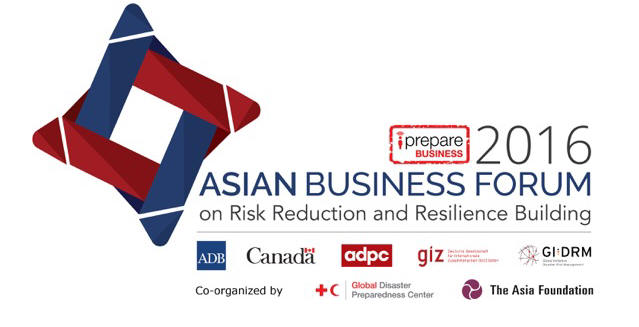The private sector is increasingly affected by extreme weather events and major catastrophes such as floods, storms, earthquakes and tsunami. The disaster impacts on business will continue to rise unless investments are made to improve climate change mitigation and adaptation.
The Sendai Framework for Disaster Risk Reduction (SFDRR) 2015‒2030 highlights the need for the business sector to integrate disaster risk management, including business continuity, into business models and practices through disaster-risk-informed investments, especially in micro, small and medium-sized enterprises.
While private sector entities are affected by disasters, small and medium-sized enterprises (SMEs) are particularly vulnerable to disasters due to a lack of investments in disaster risk management. Addressing this gap is crucial because SMEs account for more than 97% of all enterprises in the region (APEC, 2015) and play a key role in its economic prosperity and post-disaster economic recovery by guaranteeing income and employment for the majority of people.
The Bangkok Declaration, resulting from the 6th Asian Ministerial Conferences on Disaster Risk Reduction, highlights the importance of “risk-informed investment as part of business processes” to achieve business sustainability and resilience. In addition, since 2011 the Asia-Pacific Economic Cooperation (APEC) summit has repeatedly called for private sector resilience and enhanced capacities of businesses, particularly SMEs in preparing for disasters. The 21st APEC SME Ministerial Meeting in China also emphasized the importance of disaster resilience for SMEs and their recommendations include capacity building and the establishment of business continuity plans (BCPs) for all industries.
In order to capitalize on the momentum generated through these
various global and regional forums, The Asian Business Forum 2016 Risk
Reduction and Resilience Building will take place from 20–21 April 2016 in
Bangkok, Thailand. The objective of the forum is to reflect on and recognize
various efforts and initiatives on resilience building in the private sector,
and learn from the challenges and good practices in the region. This will help
the private sector, including SMEs, governments and development partners
translate the global and regional commitments into their own terms and
articulate their priority actions for the coming years in order to strengthen
business resilience and ultimately build safe and resilient communities. The
specific objectives of the forum are to:
- Highlight the importance of business resilience for inclusive and sustainable regional economic development and resilient communities;
- Reaffirm the commitment in strengthening disaster resilience of businesses, particularly SMEs;
- Exchange knowledge, experiences and best practices in private sector engagement in disaster risk reduction; and
- Increase collaboration for enhancing the capacities of the private sector in building business resilience.
The forum program consists of:
- Panel discussion on ‘Policy Environment and Priority Actions for Private Sector Engagement in Disaster and Climate Risk Reduction’
- Thematic discussion on country case studies on ‘Enabling Environment for Strengthening Disaster Resilience of SMEs’
- Technical sessions on:
- Business Continuity and Supply Chain Management
- Banking and Risk Financing
- Enabling Tourism Sector Resilience
- Incentivizing SMEs for Disaster Resilience





